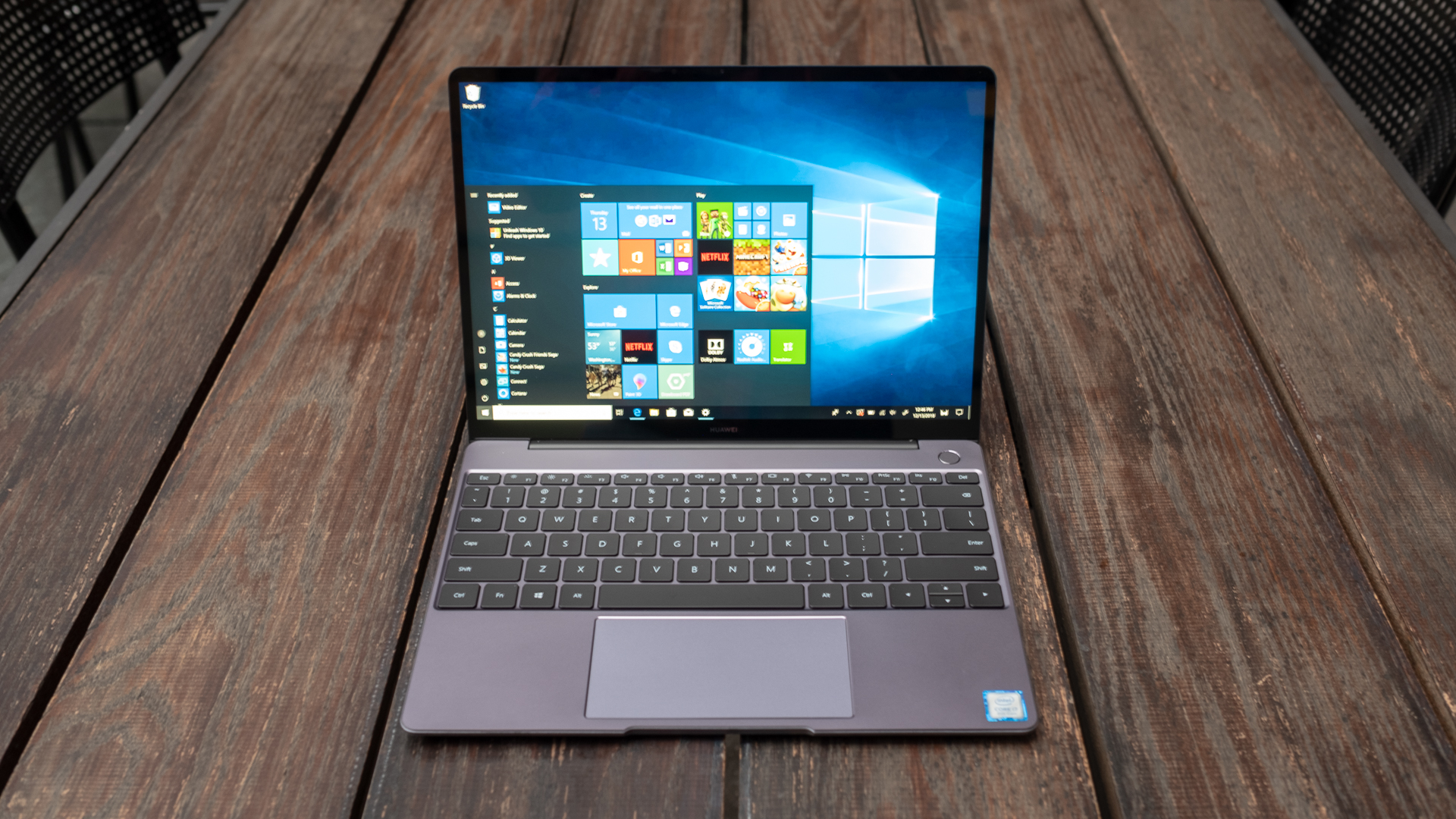CES 2019 was absolutely buried in laptops and PCs – why?
Microsoft certainly has an idea

Sign up for breaking news, reviews, opinion, top tech deals, and more.
You are now subscribed
Your newsletter sign-up was successful
At CES 2019, we've experienced an absolute deluge of laptops and other computers that made this year’s show feel more like Computex than the Consumer Electronics Show. That’s not even on account of Nvidia’s big push into RTX graphics on laptops.
Not counting the 40-some new gaming laptops on display at the show, we easily saw another 40 general use laptops this year – and almost all of them would have been worth deeper coverage had we not forgotten to clone ourselves before landing in Las Vegas.
Just three years ago, the popular opinion was that laptops and PCs were dead in the water, that you should sell your stock or just pick up a tablet. So, what’s up with this explosion in laptop production for 2019?
Mark Linton, GM of OEM Portfolio and Product Management for Microsoft, gave us a few of his ideas at the company’s media showcase in Las Vegas. Who better to ask than someone who’s working with all of these laptop makers every day?

Upgrade time is up for a lot of users
“There are a few factors here,” Linton tells us, “innovation in silicon, innovation in graphics [and] Windows 10 momentum in terms of the install base. Windows 7 is going end of support in a year, and so customers are looking to move to make sure they get updated and so on.”
Ding, ding, ding – we have a winner. Yes, the advancements in processing and a steady rise in Windows 10 adoption are contributors. However, Microsoft stopped pushing feature updates to its almost 10-year-old operating system (OS) back in 2015, and support for Windows 7 security updates will end on January 14, 2020. This is a much more plausible explanation for the explosion in new laptops for 2019.
“Each silicon generation, things get thinner and better battery life,” Linton adds. “Again, I often compare it to that Windows 7 machine [that] is six or seven years old, compared to what you’re getting now, it blows your mind. Windows 7 support is a big one that we see customers thinking about, you know, ‘I want to upgrade to Windows 10, so I can get updates.’ And, just overall, excitement is back in the PC.”
Sign up for breaking news, reviews, opinion, top tech deals, and more.
You might be thinking, “Wait, why didn’t all these people just upgrade to Windows 10 when it was free?” Well, then you’re not the average computer user. The vast majority of computer users don’t pay much attention to such things as OS updates.
(The only reason Apple’s iOS updates have such wide adoption is because of their insistence and simplicity – notice how Apple doesn’t publicly share macOS install base figures much?)

It appears that hardware manufacturers the world over are preparing to be there for the time when users finally notice that their aged Windows 7 device isn’t receiving updates at all. How Microsoft will ultimately communicate this to users is unknown, but surely the company will do everything in its power to ensure its warnings are heeded.
Microsoft clearly has been preparing for this moment, working more closely than ever with laptop makers to produce more attractive options at all ends of the budget spectrum.
“There’s a PC for everyone. They start at sub $200 and go all the way up to the very high end,” Linton says in conclusion. “We’ve done a lot of work with our partners on the engineering side to get things like 32GB storage, to get updates working great, to get the driver model really smooth. So, no matter what you spend, you’re going to have a great, reliable Windows 10 experience.”
If you know someone in your life that’s still rocking a Windows 7 laptop or PC from a few years back, give them a gentle nudge and tell them it’s time to upgrade. Even at the budget level, comparatively, they’re in for a massive boost.
Check out all of TechRadar's CES 2019 coverage. We're live in Las Vegas to bring you all the breaking tech news and launches, plus hands-on reviews of everything from 8K TVs and foldable displays to new phones, laptops and smart home gadgets.

Joe Osborne is the Senior Technology Editor at Insider Inc. His role is to leads the technology coverage team for the Business Insider Shopping team, facilitating expert reviews, comprehensive buying guides, snap deals news and more. Previously, Joe was TechRadar's US computing editor, leading reviews of everything from gaming PCs to internal components and accessories. In his spare time, Joe is a renowned Dungeons and Dragons dungeon master – and arguably the nicest man in tech.